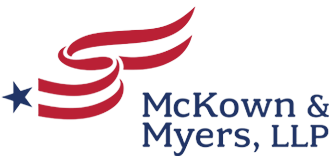 Headaches are a common symptom of post-traumatic stress disorder (PTSD) and are often overlooked as a minor inconvenience or a common ailment not easily related to their service. Unfortunately for many veterans, these headaches, especially chronic ones, can be a debilitating and constant source of pain that impedes their daily lives. Although this ailment can be caused by a variety of factors, including stress, anxiety, and depression, veterans experiencing this pain may also be a sign of service-connected PTSD.
Headaches are a common symptom of post-traumatic stress disorder (PTSD) and are often overlooked as a minor inconvenience or a common ailment not easily related to their service. Unfortunately for many veterans, these headaches, especially chronic ones, can be a debilitating and constant source of pain that impedes their daily lives. Although this ailment can be caused by a variety of factors, including stress, anxiety, and depression, veterans experiencing this pain may also be a sign of service-connected PTSD.
The connection between PTSD and headaches is complex. Often called chronic headaches, tension-type headaches, or migraines are common types of stress-related ailments that can be tied to PTSD. These types of conditions are also called secondary headaches.
Traumatic experiences can trigger a cascade of physiological changes in the body, including alterations in the nervous system, which can contribute to headaches. Additionally, the chronic stress and anxiety associated with PTSD can increase muscle tension and sensitivity, further exacerbating headaches.
The Impact of Ailment on Veterans
Headaches can significantly impact the quality of life for veterans with PTSD. The constant pain can interfere with sleep, concentration, and social interactions, leading to feelings of isolation and frustration. For many veterans, these headaches can be so severe that they are unable to work or participate in daily activities.
VA Benefits for Veterans with Headaches
The Department of Veterans Affairs (VA) recognizes the link between PTSD and headaches and offers a range of benefits to help veterans cope with this condition. If you are a veteran who experiences headaches that you believe are related to your PTSD, you may be eligible for military benefits.
These benefits may include:
- Disability compensation: Veterans with a service-connected disability related to PTSD, including headaches, may be eligible for monthly compensation payments. This compensation is a monthly payment that can help to offset the financial impact of your disability.
- Medical care / Medical treatment: The Department of Veterans Affairs (VA) provides free medical care for veterans with service-connected disabilities. These medical services to treat headaches and PTSD include, but are not limited to, medications, physical therapy, and cognitive-behavioral therapy.
- Mental health counseling: Veterans with PTSD can receive counseling to help manage their symptoms and develop coping strategies.
- Vocational rehabilitation: The VA offers programs to help veterans with disabilities find and maintain sustainable employment or start their businesses.
Veterans who experience headaches and believe they are related to PTSD may be eligible for military benefits. The VA benefits provide veterans with the support and resources to manage their symptoms and improve their quality of life. Fortunately, veterans can find relief from this debilitating condition by understanding the connection between PTSD and headaches and taking advantage of available VA benefits.
Navigating the VA benefits system can be a complex and time-consuming process. Unfortunately, it is common for veterans who are diagnosed with ailments to face challenges in obtaining the benefits and assistance they deserve. For this reason, veterans need to seek legal assistance if they encounter difficulties in their application or appeal. Experienced attorneys specializing in VA benefits can help veterans gather and present substantial evidence to support their claims, advocate during appeals, and protect their legal rights. Seeking legal assistance can also help veterans avoid common mistakes, which could lead to a denial of benefits. With the proper support, veterans with cancer diagnosis can obtain the benefits they need to manage their conditions, improve their quality of life, and move forward with confidence.
At McKown and Myers, it’s our job to help Hoosiers like you get the compensation they need to get medical treatment and support their families. We’re here to answer your questions about navigating the VA benefits system – call 765-668-7531 or complete our contact form here. There’s no obligation – we’re here to help.
